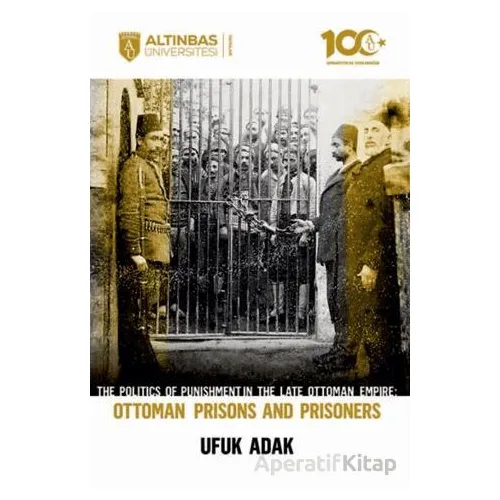The Politics of Punishment in the Late Ottoman Empire-Ottoman Prison And Prisoners
Hiç mesaj bulunmadı
| Taksit | Tutar | Toplam |
|---|---|---|
| Tek Çekim | 238.00 TL | 238.00 TL |
| 2 Taksit | 119.00 TL | 238.00 TL |
| 3 Taksit | 82.51 TL | 247.52 TL |
| 4 Taksit | 62.48 TL | 249.90 TL |
| 5 Taksit | 50.46 TL | 252.28 TL |
| 6 Taksit | 42.44 TL | 254.66 TL |
| Ödeme Türü | Toplam Tutar |
|---|---|
| Diğer Kredi Kartları | 238.00 TL |
| Havale / Eft | 238.00 TL |
| Posta Çeki | 238.00 TL |
| Kapıda Ödeme | 253.00 TL |
Kapıda ödemeli siparişlerde +15,00TL kapıda ödeme hizmet bedeli ilave edilir. | |
- Vade farksız taksitler KOYU renkte gösterilmektedir.
- X+X şeklinde belritilen taksitler (Örneğin: 2+3) 2 taksit olarak işleme alınmakta ancak ilgili bankanın kampanyası dahilinde 2 taksit üzerinden işlem yapıldığı halde 2+3 yani 5 taksit olarak kartınıza ve ödemenize yansımaktadır. (2 taksit seçilmiş olsa bile banka kampanyası dahilinde ekstradan vade farkı eklenmeden işlem 5 taksite bölünmektedir.)
The Politics of Punishment in the Late Ottoman Empire-Ottoman Prison And Prisoners
This book examines the politics of punishment and the implementation of prison reform in the late Ottoman Empire, specifically focusing on the significant Eastern Mediterranean port cities of Istanbul, Izmir, and Salonica. Drawing from a wide array of primary sources, including the Ottoman Archives, Ottoman and British newspapers, penal codes, yearbooks, architectural and city plans, photographs, and illustrations, the analysis of the transformation of prisons in the 19th and 20th centuries covers various aspects such as health, hygiene, prison labor, prison architecture, and urban development.
During the Tanzimat period, Ottoman reform efforts led to the construction of numerous public buildings in Ottoman cities, such as military barracks, hospitals, government palaces, clock towers, and prisons. As with these other symbols of modern state power, prison reform became an important site for the standardization of government authority. By including state and non-state perspectives, this work explores how punishment took on novel political importance for Ottoman officials and prisoners in the late Ottoman Empire, especially evident in the shift from dungeons to purposefully built prisons.











